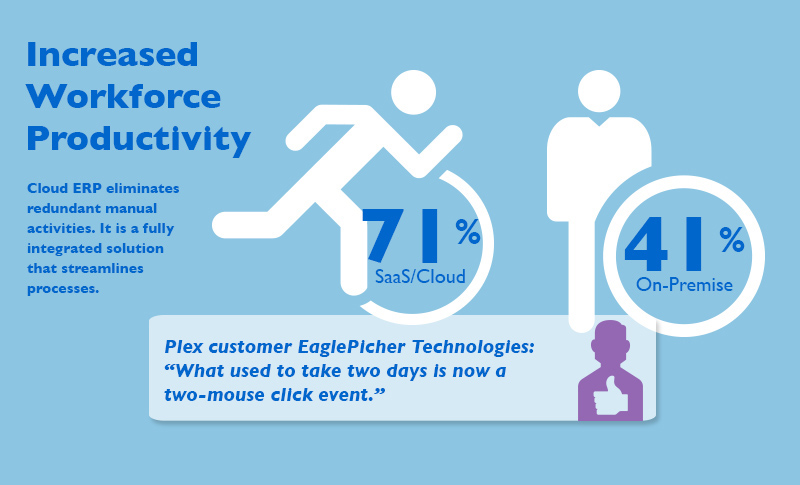 As an increasing number and range of IT services make the move online to the cloud, more executives are faced with the decision whether to move their enterprise resource planning (ERP) systems across to this public space. Although many IT companies have moved a number of their ERP fringe services, such as HR systems, into the cloud, many CIOs are hesitant about whether this is a good idea for core supply chain and financial operations.
As an increasing number and range of IT services make the move online to the cloud, more executives are faced with the decision whether to move their enterprise resource planning (ERP) systems across to this public space. Although many IT companies have moved a number of their ERP fringe services, such as HR systems, into the cloud, many CIOs are hesitant about whether this is a good idea for core supply chain and financial operations.
There are certain factors that need to be considered when weighing up the relative advantages and disadvantages of moving corporate functionality to the cloud. Company size, security needs, solution complexity and industry type are all factors that need to be addressed.
Research has shown that businesses in a number of different sectors can greatly benefit from moving their ERP systems to the cloud.
Renewable energy
Cloud computing helps energy companies to keep tighter control over their costs and enables better transparency and flexibility, essential to their enhanced public accountability.
Professional services
The adoption of cloud computing can reduce the lag times for financial transactions by up to 5%, and specialist cloud tools reduce the time to take on board new business services by almost half.
Manufacturing
By eliminating in-house servers and moving to online ERP, manufacturing companies can save significant amounts of outlay and process orders within seconds instead of minutes. In the automotive industry, for example, cloud-based systems can reduce the costs of financial transactions by 80%.
Retail
A quarter of retail companies find that using the cloud helps them introduce new products to the market with much greater ease; for example, companies could use a cloud-based reporting system for VAT. A stand-alone, distributed server can cost twice as much as a cloud implementation.
Wholesale and distribution
Reduced pre-order shipping times and increased inventory visibility by using cloud-based ERP greatly reduces overheads in wholesale and distribution. IT costs can also be cut significantly by the adoption of cloud computing.
IT services
Increased customer case efficiency and an improvement in the tracking of billable time are just two areas in which cloud computing can increase monthly revenues for an IT company.
Media and publishing
Journalists are able to gain access to databases from any area in the world through the use of cloud computing, and hardware resource costs of media companies are greatly reduced. Easier and quicker access to information also enables sales reps to greatly improve their productivity.
Cost-efficiency, scalability and flexibility are therefore the main benefits of moving from an in-house ERP environment to the cloud. These are realistic and tangible benefits for any company, whatever its size, and implementation costs for the move are thereby virtually cancelled out. There does, however, need to be an ongoing commitment to new technologies on the part of any organization if it is to realize the full potential of cloud-based ERP.
Learn more
The cloud has completely changed the way we do business over recent years. With new cloud-based solutions appearing every day, businesses must loo ...
Cloud hosting stands out as a highly attractive, unique hosting platform. It allows the organization to host a website or applications on clusters ...
Today, businesses around the world have more options than ever before to streamline their storage efforts. With the vast amounts of data that busi ...
No one likes to be accused of walking around with their head in a cloud. However, keeping your sensitive business info in the cloud is a whole oth ...
Integrating legacy systems with ERP and CRM is going to lay the foundation for new business models in 2017. With the ever-changing needs of custom ...







